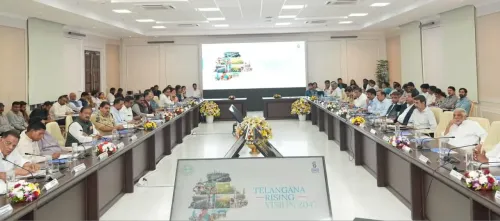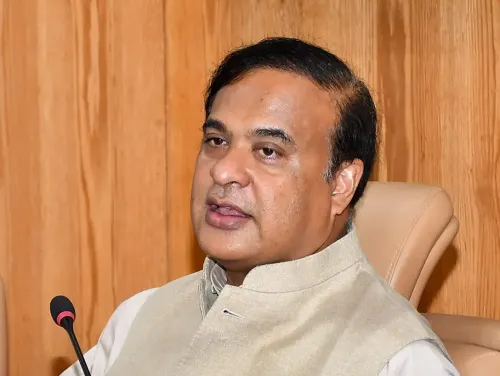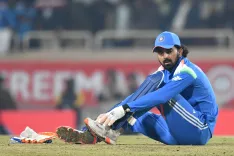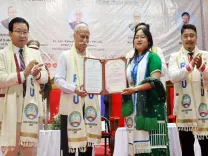How is India Strengthening Global Cooperation and Standards in Herbal Medicine Regulation?

Synopsis
Key Takeaways
- India's commitment to enhancing global herbal medicine regulation.
- Active participation in WHO-IRCH meetings.
- Focus on evidence-based policy initiatives.
- Importance of international collaboration in traditional medicine.
- Strengthening the regulatory ecosystem for herbal medicines.
New Delhi, Oct 15 (NationPress) India has reiterated its dedication to enhancing global collaboration and establishing benchmarks in herbal medicine regulation during the 16th Annual Meeting of the World Health Organization – International Regulatory Cooperation for Herbal Medicines (WHO-IRCH).
A delegation headed by Dr. Raghu Arackal, Advisor (Ayurveda) and Deputy Director General (I/c), Ministry of Ayush, shared the Workshop Report on “Efficacy and Intended Use of Herbal Medicines (Working Group-3)”. This report emphasized India’s developing regulatory framework and policy initiatives grounded in evidence within the realm of traditional medicine.
At the commencement of the meeting, taking place in Jakarta, Indonesia from October 14 to 16, Arackal presented on the current landscape of herbal medicines in India, showcasing recent initiatives, policy advancements, and international collaborations spearheaded by the Ministry of Ayush.
His presentation highlighted India’s persistent commitment to fortifying the regulatory environment for traditional medicines and its proactive engagement in promoting global partnerships within this sector.
Dr. Raman Mohan Singh, Director of the Pharmacopoeia Commission for Indian Medicine and Homoeopathy (PCIM&H), also contributed by presenting the Workshop Report on “Safety and Regulation of Herbal Medicines (Working Group-1)” alongside an additional presentation focusing on the “Safety and Regulation of Herbal Medicines – Indian Perspective.”
“The extensive contributions from the Indian delegation illustrate India’s vital role in establishing global standards concerning the quality, safety, and efficacy of herbal medicines,” stated the Ministry of Ayush.
“Through proactive engagement with international regulatory bodies under the WHO–IRCH framework, India is committed to advocating for harmonized and science-driven regulations in traditional medicine and natural product healthcare,” it added.
Dr. Mahesh Dadhich, CEO of the National Medicinal Plants Board (NMPB), participated in discussions regarding the sustainable utilization of medicinal plants and the significance of international cooperation in maintaining quality control and standardization.
“India’s involvement underscores its unwavering commitment to enhancing international collaboration and elevating global standards in the regulation of herbal medicine,” emphasized the Ministry.
This event gathered regulatory authorities and experts from around the world to bolster international cooperation and harmonization in the regulation of herbal medicines.










